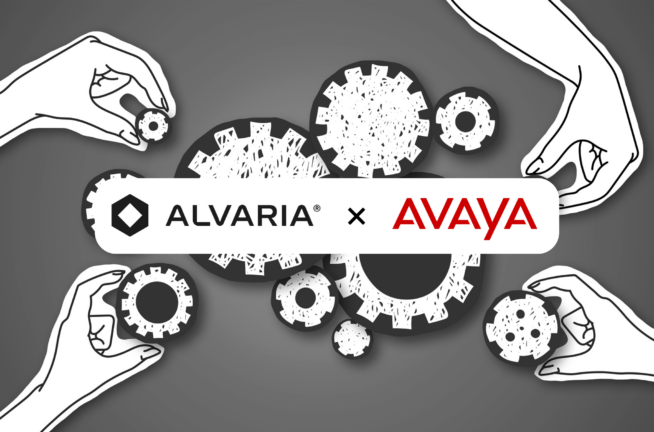The drive for exceptional customer experiences is driving technological advancements. This is shaping the future of contact centers, providing better, smarter, and more intuitive tools to streamline workflows for contact center agents and powering improved self-service options.
Recent research indicates that artificial intelligence (AI) technology will be a major focus of contact center investment over the next year, particularly in improving agent efficiency (47%) and enhancing the customer experience (49%).
Brands are making substantial AI investments, with the majority (66%) expecting to ramp up their spending on CX technology, including AI, over the next 12 months. This figure rises to 84 percent for businesses that already deem AI a key part of their CX strategy.
AI Advancements for Agent Empowerment
Investing in AI to support customer service agents continues to be a game-changer for enhancing efficiency and employee satisfaction. AI can streamline routine tasks, provide real-time insights, and offer personalized recommendations, allowing agents to focus on more complex and meaningful interactions.

The AI technologies empowering agents today include:
AI for self-service – AI-powered chatbots and virtual assistants can book a flight, change a medical appointment, or sell a product to the customer – directly in the chat. Leveraging conversational AI, these bots enable the quick and efficient deployment of CX automation across all engagement channels. This delivers consistent and personalized self-service customer experiences while also improving contact center operations.
AI for agent and supervisor assistance – When customer service interactions involve negative sentiments, escalations, long silences or multiple interruptions, real-time agent assist tools provide secure, AI-driven, real-time guidance. Suggestions are based on acoustic (nonverbal), linguistic (verbal), and desktop activity for employees working from anywhere. Automated quality management (AQM) evaluates 100 percent of voice and text interactions, identifies non-compliance, and assigns agent coaching when needed. AI-powered scoring bots automatically and continuously evaluate all interactions against scoring rules.
AI bots for tackling tasks independently – The time agents spend between calls can cost companies millions in additional labor. Interaction wrap-up bots use deep learning to provide real-time transcription accuracy that is securely fed into generative AI algorithms, such as ChatGPT, for automatic interaction summarization. In addition, interaction transfer bots can provide seamless transitions from self-service to assisted service and eliminate the need for customers to repeat information already provided.
AI bots for flexible scheduling – Scheduling bots powered by AI can automatically calculate the impact of shift changes based on forecasted volumes, capacity, and performance. With AI applied to workforce management forecasts, agents can make autonomous scheduling changes without manager involvement or approval. Offering shift flexibility has been shown to reduce attrition by an average of 25 percent by helping employees achieve better work-life balance.
AI bots for real-time coaching – Coaching bots leveraging conversational AI have the unique ability to securely listen to conversations in real-time and use AI to notify and assist employees and supervisors about ways to handle a call more effectively. By providing real-time feedback and coaching, agents can elevate their performance as well as the customer experience.
In addition, real-time coaching tools support quality assurance, enabling supervisors to ensure agents follow company protocols and provide consistent service. In this scenario, supervisors can intervene if agents deviate from best practices or have compliance issues.
AI Advancements for Meeting Customer Expectations
Businesses are increasingly investing in AI technology to meet customer expectations for service speed and satisfactory resolution.
When asked to prioritize essential elements of excellent CX, a significant majority of respondents – 87 percent – emphasized the importance of speed. Satisfactory issue resolution is also key. If customers have an amazing experience, they’re likely to purchase from the same company (85%) and/or recommend them to a family member or friend (75%).
Brands are recognizing the upside of better bots for self-service. Traditional chatbots and automated phone menus have always been faster and cheaper than hiring more agents. However, they haven’t always been “good.” Fortunately, today’s AI-powered chatbots can deliver good CX –speed and issue resolution. Of the survey respondents who used an AI-powered chatbot, 70 percent cite at least one benefit of using it, with 52 percent saying that it “saves time and resolves issues faster.”
AI Enhances CX and Boosts Agent Efficiency
By strategically integrating AI tools, companies can equip customer service agents with the resources they need to deliver exceptional CX while enhancing overall operational effectiveness. This strategic investment boosts agent performance and elevates the customer journey, creating a win-win scenario for both employees and customers.
Jason Valdina is an accomplished customer experience professional and is the Senior Director of Engagement Channel Strategy at Verint, the CX Automation company. The world’s most iconic brands – including more than 80 of the Fortune 100 companies – use the Verint Open Platform and its team of AI-powered bots to deliver tangible AI business outcomes across the enterprise.









